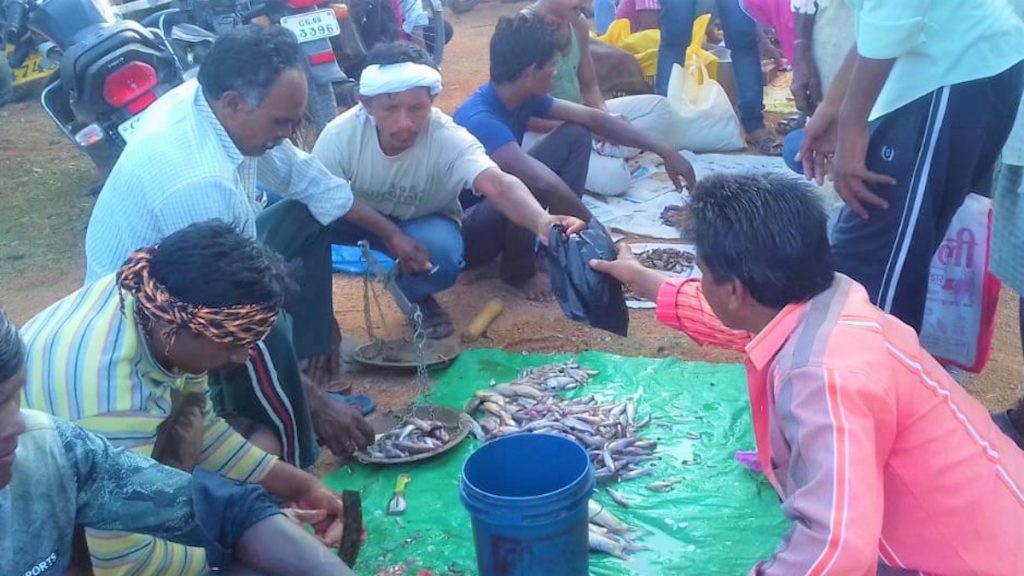Sumit Putre lost his job as a salesman not long after India went into a nationwide lockdown on March 24 to fight COVID-19. Like many others, his employer was unable to keep him on.
For more than a decade, Putre had worked for the garment shop in a mid-sized town in eastern Chhattisgarh state not far from his village.
Prior to the lockdown, which began March 24, he was earning 10,000 rupees (US$ 150) a month; enough for him to look after his family, which included two daughters.
With the lockdown the 45-year-old no longer had the means to look after his family which left this tribal man in a dire situation
The first two weeks of being jobless were mentally the hardest for Putre.
“I would imagine my daughters not being able to go to the school because I would have no money to fund their education. Dreadful scenes of them going hungry haunted me,” Putre told LiCAS.news.
Putre and his family in Ambagarh Chowki village were not the only ones facing an uncertain future. Others such as daily-wage laborer Shiv Shambu were experiencing what could be described as a crisis in their lives.
Post lockdown, Shambu had no work and he exhausted his savings to treat the asthma of his 12-year-old daughter.
He spent days worrying about his family’s situation. “Poverty is a disease crueler than the coronavirus itself. It was killing us much ahead of COVID,” Shambu told LiCAS.news.
As the villagers weighed up their options a group of Caritas India members from the local region came up with a long-term strategy to assist them.
Caritas India director, Father Paul Moonjely, said that the villagers had access to forests and its natural water resources, so the idea of fish farming was proposed.
Father Paul said the village committee was given a proposal by the Caritas team to show what benefits could be had.
“A team of experts were consulted to ensure the venture was profitable and able to allow the villagers to earn a livelihood from it,” said Father Paul.
The priest said that the village heads readily agreed to the idea and villagers volunteered to be involved in the project of making a dam into a fish farm with work beginning in May. More than 50 families joined the project and helped do the required work to a small dam.
Devnath Sagar, a projectvolunteer, said Caritas brought in a team of experts from the Fishery Department to train the villagers about fish farming. The Fishery Department also provided fish fingerlings for no cost to the villagers.
“The families working on the dam were split into groups with each given a different task,” Sagar said.
“While some were accorded the responsibility of feeding the fish, some were given the charge of ensuring the dam water didn’t get contaminated. As we worked on the project we were brimming with hope.”

Putre and Shambu were amongst the first of the villagers involved in the project and since it began, Putre has earned more than 30,000 rupees (US$ 500) from fish sales; enough money to feed his family and continue his children’s education.
“Every 15 days the fish are distributed equally among village members on a rotational basis and we sell it in the open market,” Putre said.
Anjan Beg, Caritas India spokesman, said it took a month of hard work until the villages sold their first fish.
“This collective initiative motivated many people of the village and now they are working together to develop the village resource management plan,” Anjan said.
The Caritas team has also helped villagers involved in the project set up a bank account to help them manage their funds.






